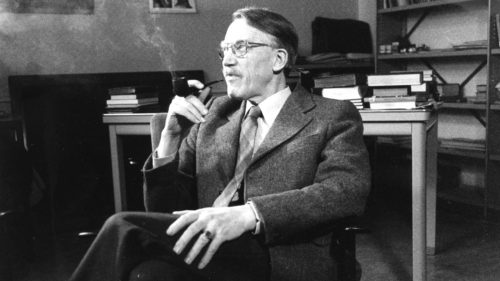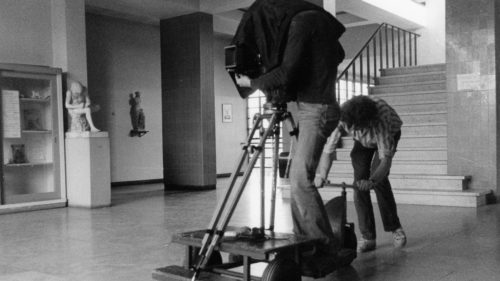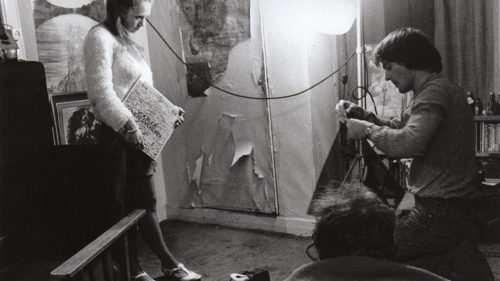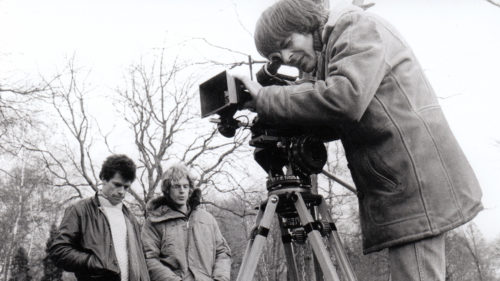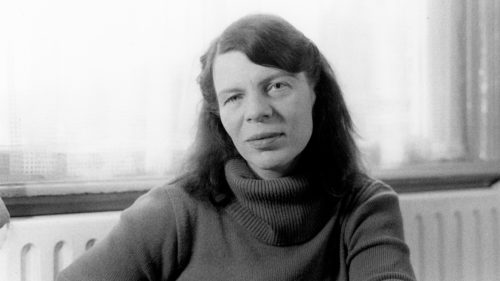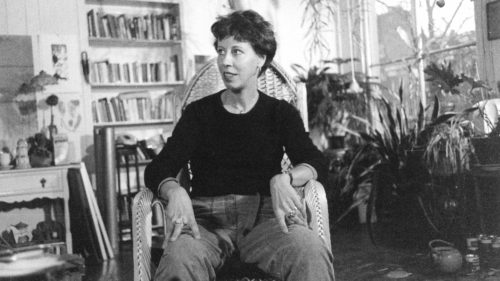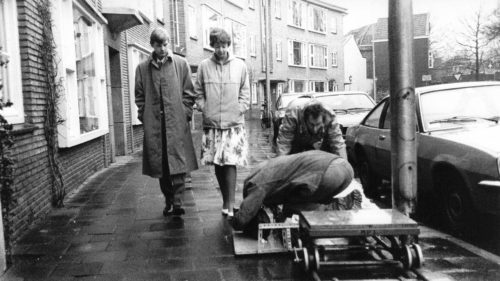THE HOPE OF THE FATHERLAND
year: 1982
length: 90 minutes
logline:
a film about Apophorèta, the school newspaper of the Utrecht Municipal Gymnasium, dealing with themes like to-write-or-not-to-write, expectations and growing up.
synopsis:
Why do so many people write sensitive poems and stories in their teens and why do they usually stop when they leave school? And why do some of these poems and stories get published in the school newspaper, even though the authors often fear as much as hope that the others may read them? Confusing experiences apparently belong to that age, and feelings are of an unprecedented intensity because nothing has yet found its definitive place. Afterwards, that which was completely chaotic at the time seems to fit together like a jigsaw puzzle. But what do people allow themselves to remember? Thank God we forget a lot of unpleasant things. But sometimes we can’t.
In this film, 14 people talk about their experiences with Apophorèta, the school newspaper of the Utrecht Municipal Gymnasium. It was founded in 1937 and is still going strong. But what they are really telling us is was it like to be a teenager, to be a pupil at that particular classical school, and to have ambitions. And to put that into words, as it happened. Into letters. In all kinds of forms.
And there is also a train journey.
Two women travel from Amsterdam to Utrecht. A misty landscape flies by. They talk about the past, about school, about expectations and what has come of them. They do not really talk about it, unlike the people interviewed in the film. They just pretend to be talking about it. They are saying what I would say if I had the courage.
I can’t get around it: I also attended that school, and I was one of the editors of that paper. And that school newspaper was one of the things that made it a little clearer to me what I should do and what I should not do.
(source: flyer, my own text)
screenplay, direction & editing: Digna Sinke
camera: Jan Wouter van Reijen
sound: Menno Euwe
production manager: Rens Oomens
producer: Rolf Orthel
with:
Wils Brunings
Henk Sillevis
Rudolf Engelberts
Hans van Regteren Altena
Loud Wesseling
Jan Wienese
Roelof Oldeman
Hannemieke Stamperius
Charlotte Mutsaers
Babet Mossel
Marjan Peer
Maarten Edel
Bas des Tombe
Emmie Lewin
and Catherine ten Bruggencate & Andrea Fiege
music:
Hans van Berkestijn
Rudo den Hartog
